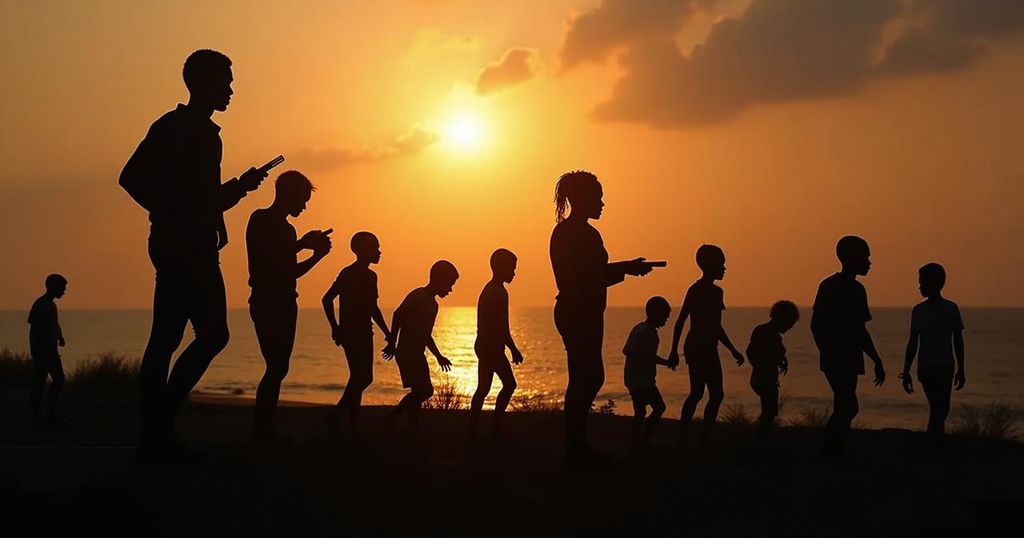Dominican Republic to Expel Thousands of Haitian Migrants Amid Ongoing Crisis

The Dominican Republic plans to expel up to 10,000 Haitian migrants weekly, despite warnings from the UN about the escalating gang violence and humanitarian crisis in Haiti. The government’s decision reflects a hardline approach toward undocumented migration, raising concerns over potential discrimination and the implications for Haitian safety.
The Dominican Republic has declared its intention to begin expelling up to 10,000 Haitian migrants each week, provoking concern from international organizations amid escalating gang violence in Haiti. Homero Figueroa, a spokesman for the Dominican presidency, stated the operation is intended to address the excessive presence of migrants in Dominican communities. This decision was announced in the wake of a United Nations report detailing the harrowing situation in Haiti, where over 3,600 individuals have lost their lives due to rampant gang violence within the year. The disturbances have also resulted in the internal displacement of more than 700,000 Haitians, compounded by a humanitarian crisis that leaves 5.4 million people facing severe hunger. The Dominican government indicated that these expulsions would commence immediately, highlighting the slow response of the international community in stabilizing Haiti. President Luis Abinader lamented the inadequate assistance from global actors during a critical time and noted that his administration has already expelled 250,000 undocumented Haitians in 2023. The new plan proposes to increase this expulsion rate significantly, potentially exceeding the estimated number of Haitians residing in the Dominican Republic, which is approximately 495,815 according to official statistics. Critics, including human rights advocates, have condemned this approach, asserting that it perpetuates a discriminatory immigration policy that reflects historical anti-Haitian sentiment. They argue that individuals perceived as Haitian, including those of mixed race, are being unjustly targeted. Advocates continue to raise awareness regarding the implications of such policies on families, noting that valid document holders have also faced deportation, which they classify as a form of racial persecution. In response to the escalating violence and instability in Haiti, the United Nations High Commissioner for Refugees (UNHCR) has urged countries worldwide to refrain from deporting Haitians, citing the urgent need for international protection due to rampant violence and human rights abuses. Elizabeth Tan, director of UNHCR’s division of international protection, emphasized the necessity of safeguarding the lives of Haitian individuals in such perilous circumstances.
The Dominican Republic shares the island of Hispaniola with Haiti and has a complex historical relationship with its neighbor. Over the years, Haiti has faced debilitating instability, exemplified by endemic gang violence, which has increased sharply in recent months. The humanitarian crisis in Haiti is severe, with widespread hunger and displacement driven by the actions of armed groups. The UN has called for caution in returning Haitian migrants due to these dire circumstances. Historically, migration from Haiti to the Dominican Republic has been influenced by both political and economic factors, exacerbated by past occupations and ongoing poverty in Haiti. The Dominican government’s current stance reflects a broader trend of addressing immigration with a strict approach, often criticized for its racial undertones and discriminatory practices.
In summary, the Dominican Republic’s decision to expel up to 10,000 Haitian migrants weekly is a significant development amid a backdrop of severe instability in Haiti. This policy raises ethical questions regarding the treatment of migrants and refugees, especially considering the precarious conditions in their home country. As the situation evolves, international entities continue to advocate for the protection of Haitian nationals, emphasizing the critical need for humanitarian responses to avert further crises.
Original Source: www.aljazeera.com







